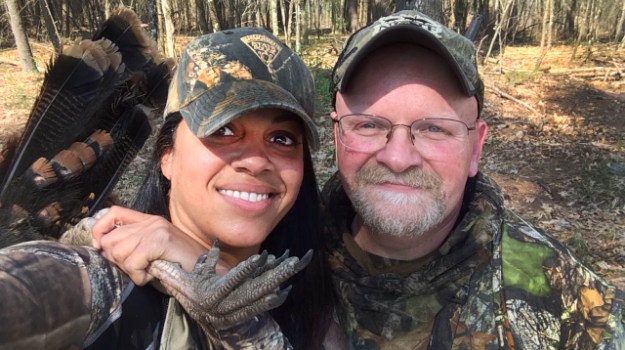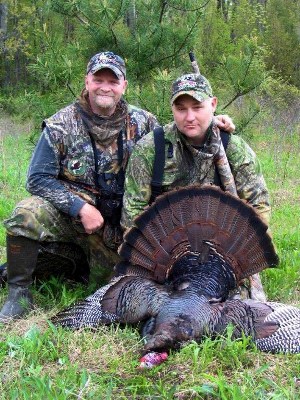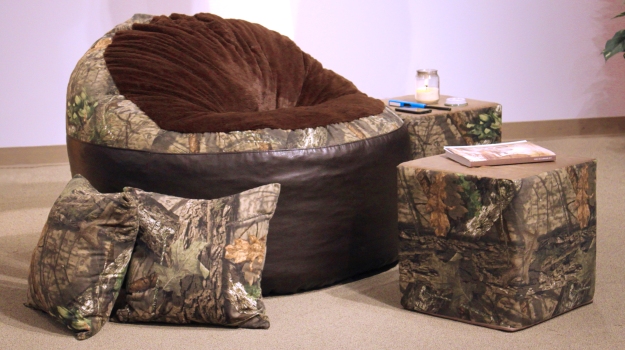
Editor’s Note: The greatest trophies a turkey hunter ever can take won’t be mounted on the wall, kept in a shoe box or put on display for all to see. The greatest trophy that a turkey hunter ever has is the memory of teaching others how to hunt and take turkeys. Philip Mailhiot of Westminster, Massachusetts, a Mossy Oak pro for 6 years, was the first person to ever be awarded the title of the National Wild Turkey Federation’s Mentor of the Year. Mailhiot serves on the Massachusetts State Board of the NWTF and holds several positions with the Central Massachusetts Chapter, including committee member, JAKES coordinator and Education Director. According to the NWTF, Mailhiot is a lifelong hunter and outdoorsman who is so passionate about his turkey hunting lifestyle that he makes it a priority to share it with others. Prior to the spring turkey season, he coordinates and teaches numerous hunting-education and turkey-calling programs and spends the majority of his hunting season each year mentoring new hunters - both youth and adults.
I try to create hunting memories that will last a lifetime. If I'm successful, that memory will last for two lifetimes. Here’s what I mean. If I guide a person to the first turkey he or she ever has taken, or if I guide a person to his first deer, I’ll remember that hunt for my lifetime, and that person will remember that hunt throughout his lifetime. So, even though I only squeezed the trigger on one gobbler in 2 years, I've had eight other hunters who’ve taken turkeys that I’ve called up, and I've created eight lifelong memories that will span two people’s lives.How much better can turkey hunting be?
The Massachusetts Wildlife Department sets up a several-day workshop for men between 18-30 years old to learn to turkey hunt. Each of the members of the NWTF mentors two men and teaches them how to turkey hunt. During that training session, each one of the mentors takes their two beginning turkey hunters out on a hunt. At the end of the day, we all meet back at the hunting club and discuss what’s happened on our hunts. Last year was the first time we did this seminar.But at this year’s seminar, I'm going to take each one of my hunters at a different time on a private turkey hunt to give them the full experience of what a turkey hunt really is.
Before the hunt, we teach the men the different sounds that wild turkeys make. Then we break up into small groups, and the men learn how to use various types of turkey calls. In my group, I teach how to use diaphragm mouth calls and pot calls (friction calls). I'm a pro staff member for not only Mossy Oak but also for Mountain Hollow Game Calls. I teach these new hunters not to be afraid of making a bad call, because some of the worst turkey calls I've ever heard have been produced by a wild turkey hen. Many times even a bad call can produce a good turkey. By teaching newcomers not to be afraid to make a bad call, I've learned that they learn how to make good calls quicker and easier. I've learned that if I can bend a mouth call to make it fit a hunter’s palate properly, then within an hour, I can have that hunter yelping good enough to call in a turkey. I believe that once a hunter learns how to yelp, he's ready to go into the woods and start calling turkeys. The rest of the calling and hunting of turkeys can be taught in the field.
 After we've taught our students how to call turkeys, we demonstrate when to use each sound that a wild turkey makes based on where the turkey is located, the time of day that you’re trying to call to the turkey, the terrain and whether the turkey is with hens or by himself. We set-up different types of hunting scenarios and demonstrate the kinds of calls we use to bring the bird within gun range. We make sure we have plenty of time to answer all the questions that new hunters have about turkey calling and turkey hunting.
After we've taught our students how to call turkeys, we demonstrate when to use each sound that a wild turkey makes based on where the turkey is located, the time of day that you’re trying to call to the turkey, the terrain and whether the turkey is with hens or by himself. We set-up different types of hunting scenarios and demonstrate the kinds of calls we use to bring the bird within gun range. We make sure we have plenty of time to answer all the questions that new hunters have about turkey calling and turkey hunting.
When I take a new hunter into the field, after he's learned how to call, we've talked through several hunting scenarios, and we get out of the truck before daylight, the first thing I tell him is, “Just relax.There’s no guarantee that we’re going to hear, see or take a turkey today. So, stay relaxed, and we’ll have a good time. You and I are just going to take a walk through the woods. We’re hunting one thing today - a gobble. Once we get a gobble, then we’ll hunt the bird.” I try to teach the people I'm mentoring how to enjoy the woods as much if not more than how to take a turkey. If you can’t enjoy a day in the woods, you won’t hunt turkeys for very long. For instance, when I was taking out two men at one of these seminars, one of my men found a beautiful 5-point buck deer shed antler. Even though we didn’t locate a turkey, that man came home with a trophy.
One of the best things that comes out of spending the day in the woods with someone on his or her first turkey hunt is while we’re walking, listening, calling and looking, he has all types of questions about the hunt that they can’t think of in a classroom. When I take a person hunting for the first time, the hunt is about them - not about me. I want to give them every reason I can to want to come back and go hunting again.
Mossy Oak is the official camouflage of the NWTF.



























